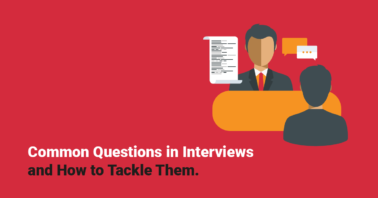In times of uncertainty—whether due to political shifts like Trump’s 90-Day Rule, economic downturns, or sudden regulatory changes—HR plays a critical role in stabilizing businesses and supporting employees. A well-prepared HR team can mitigate disruption, maintain productivity, and uphold company culture, ensuring long-term resilience.
Understanding the Impact of Crisis on Employees
When businesses face crises, employees often experience:
- Job insecurity: Fear of layoffs or reduced benefits can create anxiety and lower morale.
- Emotional stress: Uncertainty impacts engagement, leading to decreased productivity and workplace dissatisfaction.
- Operational disruptions: Changes in policies may affect workflows, team structures, and overall efficiency.
A 2023 McKinsey report found that 74% of employees say uncertainty at work negatively affects their productivity. HR’s ability to proactively manage crises is crucial for keeping teams engaged and businesses operational.
Key HR Strategies to Support Employees During a Crisis
1. Transparent and Timely Communication
Lack of clear information fuels fear. HR should:
- Provide regular updates about company decisions, policy changes, and future plans.
- Use multiple channels (emails, town halls, one-on-one check-ins) to ensure clarity and accessibility.
- Encourage open dialogue, allowing employees to express concerns and receive honest responses.
🔹 Example: During the economic uncertainty of 2020, workplace communication statistics revealed that 86% of employees and executives identified ineffective collaboration and communication as the primary reasons behind workplace failures. Keeping employees informed helps alleviate anxiety and ensures alignment with company goals.
2. Strengthening Employee Support Systems
HR should create a safety net through:
- Employee Assistance Programs (EAPs): Offering mental health and financial counseling to help employees cope with stress.
- Flexible Work Arrangements: Adjusting work schedules, implementing remote work policies, or introducing alternative work models.
- Upskilling & Career Growth: Providing training programs to help employees remain competitive in the job market and improve internal mobility.
🔹 Case Study: A LinkedIn survey found that companies investing in employee well-being saw a 56% improvement in retention rates. Employees are more likely to stay with organizations that prioritize their growth and well-being, even during challenging times.
3. Maintaining Company Culture and Morale
Even in crises, a strong culture keeps teams motivated. HR can:
- Reinforce company values through leadership messaging and employee engagement initiatives.
- Celebrate small wins to boost morale and acknowledge team efforts.
- Foster inclusion and team bonding through virtual and in-person engagement activities.
🔹 Fact: Organizations that actively maintain their culture during crises are 5x more likely to retain top talent (Deloitte, 2022). Employees thrive in environments where they feel valued and connected to a shared mission.
4. Navigating Workforce Adjustments with Empathy
If layoffs or restructuring are unavoidable, HR should:
- Offer career transition support, including resume assistance, job placement help, and career coaching.
- Provide fair severance packages and ensure ethical handling of job losses.
- Maintain alumni networks, keeping the door open for potential rehiring in the future.
🔹 Stat: A Harvard Business Review study found that 72% of employees say they would consider returning to a former employer if treated well during layoffs. Handling workforce reductions with empathy can positively impact a company’s employer brand and long-term talent strategy.
HR as a Strategic Business Partner in Crisis
Beyond employee support, HR must align crisis strategies with business goals by:
- Advising leadership on the workforce impact of policy changes and economic shifts.
- Leveraging HR tech & analytics to predict and manage disruptions efficiently.
- Ensuring compliance with evolving labour laws, regulations, and employment standards.
🔹 Example: Companies that integrate HR into crisis management decision-making see 33% faster recovery rates post-crisis (PwC, 2022). Strategic HR leadership ensures that organizations navigate disruptions with minimal long-term damage.
The Future of HR in Crisis Management
As crises become more unpredictable, HR must evolve to:
- Adopt AI-driven workforce planning tools to forecast potential risks and proactively address them.
- Enhance employee resilience programs that equip teams with stress management and adaptability skills.
- Build crisis response frameworks that allow businesses to react swiftly to emerging challenges.
By integrating data analytics, technology, and human-centric policies, HR can transform its role from crisis responder to crisis strategist.
How BrighterMonday Uganda Can Help
At BrighterMonday Uganda, we offer HR solutions, recruitment support, and career advisory services to help businesses navigate uncertain times. Our tailored services include:
- HR Consulting & Strategy Development: Helping organizations create resilient HR policies.
- Talent Acquisition & Recruitment Support: Ensuring companies attract and retain top talent even in challenging periods.
- Employee Training & Upskilling: Equipping teams with the skills needed to stay competitive in a changing job market.
📩 Contact us today to ensure your workforce remains strong, engaged, and adaptable—no matter the challenge.
Final Thoughts
A crisis is a test of leadership, culture, and resilience. HR teams that act with transparency, empathy, and strategic foresight can turn challenges into opportunities, ensuring employees feel valued and businesses emerge stronger. As organizations continue to face uncertainty, investing in HR-driven crisis management strategies will be crucial for long-term success.





